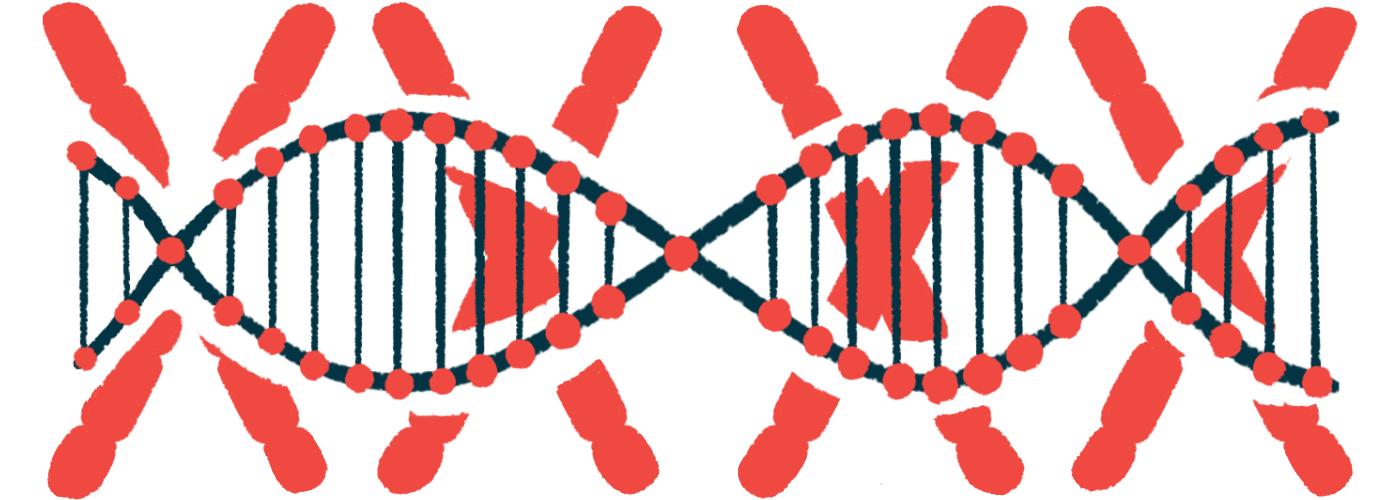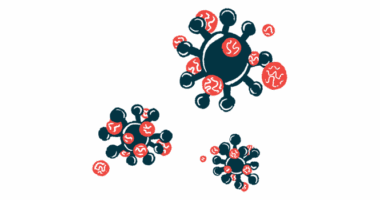Researchers identify novel CD46 gene mutation underlying aHUS
Patient in China hadn't undergone genetic testing when he was diagnosed

A never-before-reported mutation in the CD46 gene was found to contribute to the development of atypical hemolytic uremic syndrome (aHUS) in a young man in China, a study reports.
According to researchers, “this finding broadens the spectrum of CD46 gene variants associated with aHUS, providing a critical basis for clinical diagnosis, genetic counseling, and treatment.”
The study, “Identification of a new CD46 gene mutation site in a family with atypical hemolytic uremic syndrome,” was published in BMC Nephrology.
Gene mutations can set stage for aHUS to develop
In aHUS, part of the immune system called the complement cascade becomes abnormally activated, causing clots to form in small blood vessels that can damage the kidneys and other organs.
Many people with the rare disorder have mutations in genes that provide instructions to make proteins that regulate complement activity. These mutations don’t cause aHUS outright, but can set the stage for the disease to develop. Mutations in CD46, a complement-related gene, are the second-most common type of genetic abnormalities found in people with aHUS, and are seen in about 10% to 15% of patients.
In this study, scientists in China reported on the case of a 27-year-old man who was admitted to their hospital in March 2022 due to abdominal pain and discolored urine. The man had been diagnosed with aHUS as a child, and in the intervening years, he’d experienced several disease flare-ups that led to hospitalization.
Lab tests performed at the time of his 2022 admission suggested another aHUS flare-up. The man was treated with plasma exchange, a procedure used to remove and replace plasma, the noncellular part of blood. Treatment also included continuous renal replacement therapy, a type of dialysis used when the kidneys can no longer function properly, as well as blood transfusions and other supportive therapies to manage his symptoms. These treatments successfully eased his symptoms and normalized lab tests, enabling him to be discharged from the hospital.
Testing of patient reveals mutation in CD46 gene
Later in 2022, the man experienced another aHUS flare-up triggered by COVID-19. He was hospitalized and recovered with supportive treatment. His condition remained stable until April of this year, when he experienced another aHUS flare-up triggered by a digestive infection.
At the time of the latest flare, Soliris (eculizumab), an approved treatment for aHUS that works to block complement activation, had recently become available in China and was now covered by the country’s public health insurance system. After the latest flare, the man started treatment with Soliris, which quickly resolved it.
Researchers noted that Soliris led to a resolution of the flare more quickly than other treatments had in the past, which they said provides “supporting evidence for the pivotal role of targeted complement inhibition in the management of aHUS.”
As of the latest follow-up in July, the man’s symptoms remain fully controlled, and lab tests have remained normal.
Although the man had been diagnosed with aHUS in childhood, he hadn’t undergone genetic testing when he was diagnosed. During his hospitalizations, genetic testing was finally carried out and revealed mutations in the CD46 gene.
As a patient with a rare disease, I initially experienced profound isolation. Genetic testing revealed a CD46 mutation (c.1127 + 2T > A), explaining my recurrent aHUS triggered by infections and resolving years of diagnostic uncertainty.
Everyone inherits two copies of the CD46 gene, one from each biological parent. Testing showed that, in this patient, both copies of the gene carried a mutation dubbed c.1127 + 2T > A. This mutation has never been reported before, though analyses indicated that it would likely reduce the levels or activity of a protein that normally helps regulate the activity of the complement cascade, supporting the idea that this mutation could predispose a person to develop aHUS.
Genetic testing of the patient’s parents, neither of whom had aHUS, showed they each carried one mutated copy of the CD46 gene and one healthy copy of the gene.
The patient said getting answers from genetic testing has helped him feel more empowered and less uncertain.
“As a patient with a rare disease, I initially experienced profound isolation,” he wrote in a patient perspective published alongside the study. “Genetic testing revealed a CD46 mutation (c.1127 + 2T > A), explaining my recurrent aHUS triggered by infections and resolving years of diagnostic uncertainty. Today, I actively engage in treatment adherence and advocate for broader adoption of genetic analysis among patients — it not only informs therapeutic strategies but also alleviates psychological burdens stemming from diagnostic uncertainty.”








